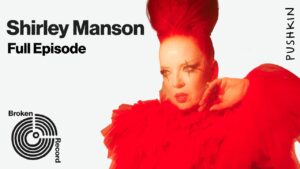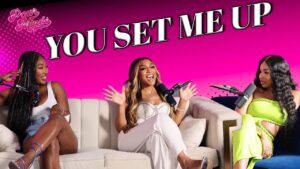Alice Randall has spent decades breaking barriers. The celebrated country songwriter, New York Times best-selling author, and now memoirist is reclaiming the Black history of country music in her latest project, My Black Country. The ambitious undertaking—spanning a memoir, a tribute album, and a forthcoming documentary—aims to rewrite the long-overlooked contributions of Black artists to the genre.
In a revealing interview on Broken Record with Bruce Headlam, Randall opens up about her lifelong love affair with country music, her journey in Nashville, and why the industry has systematically erased Black artists from its history.
From Motown to Music Row
Born in Detroit in 1959, Randall grew up surrounded by the sounds of Motown but was equally drawn to country music. “I was living in a Black city, listening to a Black-owned radio station that played country music,” she tells Headlam. That early exposure made her keenly aware of how interconnected country and Black musical traditions have always been.
“Country music is an Afro-Celtic tradition,” Randall explains. “It’s built on the sounds and rhythms of Black musicians, from the banjo—an African instrument—to the storytelling traditions that shaped its lyrics.”
Despite her passion for the genre, Randall’s entry into Nashville wasn’t easy. She faced rejection early on, including a blunt letter from Ronnie Gant at Acuff-Rose telling her she had no songwriting talent. But she persisted, going on to write hits like “X’s and O’s,” a song that resonated deeply with women across generations.
The Soundtrack to a Story
Alongside her memoir, Randall released My Black Country: The Songs of Alice Randall, a tribute album that reinterprets her work through a Black country lens. The project includes The Ballad of Sally Anne, a haunting song about lynching in the American South, performed by Grammy-winning artist Rhiannon Giddens. The track earned a Grammy nomination last year for Best American Roots Performance, highlighting the enduring impact of Randall’s songwriting.
“We’ve always been here,” Randall says of Black country artists. “From Charley Pride to the Pointer Sisters to Tina Turner—Black artists have shaped this genre in ways that can’t be ignored.”
Country Music’s Hidden Black History
Throughout the interview, Randall details the industry’s long history of erasing Black contributions. She recounts how record labels intentionally hid the race of artists like Charley Pride to make them more marketable to white audiences and how legendary musicians like Louis Armstrong were excluded from country music’s narrative despite their influence.
“The industry would literally cut Black musicians out of band photos,” she says. “The contributions of Black artists have been deliberately buried.”
She also highlights the role of Black cowboys and Appalachian musicians in shaping country music, reinforcing that the genre was never exclusively white.
A Moment of Reckoning
With a new wave of Black country artists—including Mickey Guyton, Brittney Spencer, and Allison Russell—making waves, Randall believes the genre is on the verge of long-overdue recognition.
“I think we’re finally seeing a shift,” she tells Headlam. “More Black artists, more collaborations, more truth-telling. My hope is that this moment turns into a movement.”
Through My Black Country, Randall is making sure those stories aren’t forgotten again. Whether through music, literature, or film, she’s determined to bring Black country music’s history back to the forefront—where it has always belonged.






